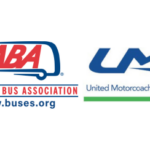New CDL English Language Proficiency Regulations Guidance

(This is an update to our May 2 brief on what ABA members should expect with the new CDL English Language Proficiency regulation.)
Following U.S. Department of Transportation (US DOT) Secretary Sean Duffy’s announcement on May 20 that the US DOT is officially rescinding guidance that relaxed enforcement of English language proficiency (ELP) regulations for commercial motor vehicle drivers, the Federal Motor Carrier Safety Administration (FMCSA) circulated an Internal Agency Enforcement Policy offering new guidance effective May 20, 2025, on how federal inspectors should enforce the regulations.
The policy advises FMCSA personnel to initiate all roadside inspections in English. If the inspector’s initial contact with the driver indicates that the driver may not understand the initial instructions, the inspector should conduct an ELP assessment to evaluate the driver’s compliance with commercial driver’s license (CDL) qualification requirements. The ELP assessment will include a driver interview and highway traffic sign recognition assessment.
As part of evaluating compliance with 49 CFR §391.11(b)(2), inspectors must assess whether a commercial motor vehicle (CMV) driver can communicate sufficiently in English to understand highway traffic signs and signals, respond to official inquiries, and make entries on reports and records. The FMCSA outlines that this evaluation begins with the driver interview.
During the interview, inspectors must determine if the driver can comprehend and respond to questions and instructions spoken in English without the use of assistance. FMCSA guidance explicitly states that language facilitation tools—including interpreters, I-Speak cards, cue cards, smartphone translation apps, or On-Call Telephone Interpretation Services—are not permitted during the driver interview. Use of such tools could conceal a driver’s inability to meet the English language proficiency (ELP) requirements mandated by federal regulation.
The inspector is responsible for making a judgment based on direct observation of the driver’s verbal responses and comprehension. If the driver is unable to respond clearly and understandably to official inquiries in English, the inspector will cite the driver for failing to meet the English language proficiency requirements.
In such instances, the traffic sign recognition portion of the assessment will not be conducted, as the failure to meet the initial ELP standard precludes further evaluation. The FMCSA emphasizes that motor carriers have a shared responsibility to ensure their drivers meet all qualification standards, including ELP, prior to operating a CMV in the United States.
Over the last two years, federal and state authorities issued approximately 15,200 ELP violations across all commercial drivers. ABA has not seen any ELP violations among passenger motor carriers among closed enforcement cases.
What to Do?
Motor carriers should comply with all lawful orders and the instructions of law enforcement.
Motorcoach drivers should not be stopped for these types of interviews or evaluations while en route between destination points unless they are considered to be an imminent hazard.
If any of your drivers are stopped en route, inform your drivers to remind the inspector of this exemption:
49 U.S.C. 31102 (c)(2)(W)
Except in the case of an imminent hazard or obvious safety hazard, ensure[s] that an inspection of a vehicle transporting passengers for a motor carrier of passengers is conducted at a bus station, terminal, border crossing, maintenance facility, destination, or other location where a motor carrier may make a planned stop (excluding a weigh station);”
Companies who have drivers cited for violations should be able to utilize the DataQ process to contest any violations they believe to be conferred in error. It is not currently clear how any DataQ challenges for ELP violations will be adjudicated under the new FMCSA policy.
When performing inspections of drivers operating CMVs in the border commercial zones along the U.S.-Mexico border, FMCSA inspectors will cite drivers for violations of failing to meet English language proficiency requirements in accordance with the new policy but will not take follow-on actions of placing the driver out-of-service or initiating an action to disqualify the driver.
Once the Commercial Vehicle Safety Alliance (CVSA) incorporates the policy in its North American Standard Out-of-Service criteria on June 25, 2025, there will be uniform enforcement by Federal and State inspectors.
Are There Exemptions?
There is an exemption for hearing-impaired drivers if the hearing-impaired driver is eligible for FMCSA and is capable of reading and writing in the English language. In that circumstance, the hearing-impaired driver satisfies the English language requirement. The absence of an ability to speak in English is not an indication that the individual cannot read and write in English sufficiently to communicate with the general public, to understand highway traffic signs and signals in the English language, to respond to official inquiries, and to make entries on reports and records.
Drivers with hearing exemptions are prohibited from operating a motorcoach or bus with passengers in interstate commerce.
What’s Next?
ABA has reached out to FMCSA to request additional industry outreach to help educate bus operators on how proficiency evaluations will be conducted and return-to-duty processes if a driver is placed out of service. ABA will also seek clarity on DataQ’s adjudication of violations, appropriate supporting materials, etc.
FMCSA has also been instructed to review how states issue non-domiciled CDLs The review will assess whether there are patterns or irregularities in the issuance process and whether current protocols sufficiently verify the authenticity and validity of domestic and international commercial driving credentials. While no immediate regulatory changes are mandated, FMCSA may propose future enhancements based on its findings.
Resources:
Hearing Impaired Driver Waiver Process





